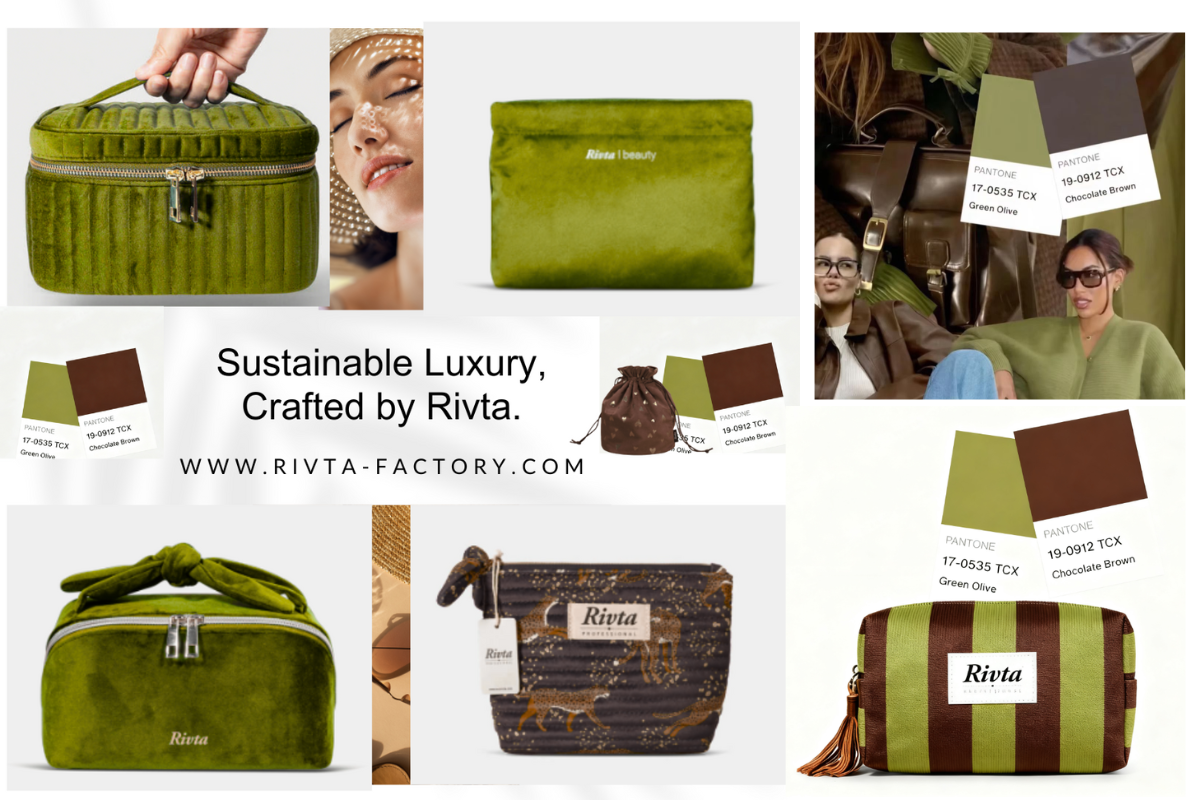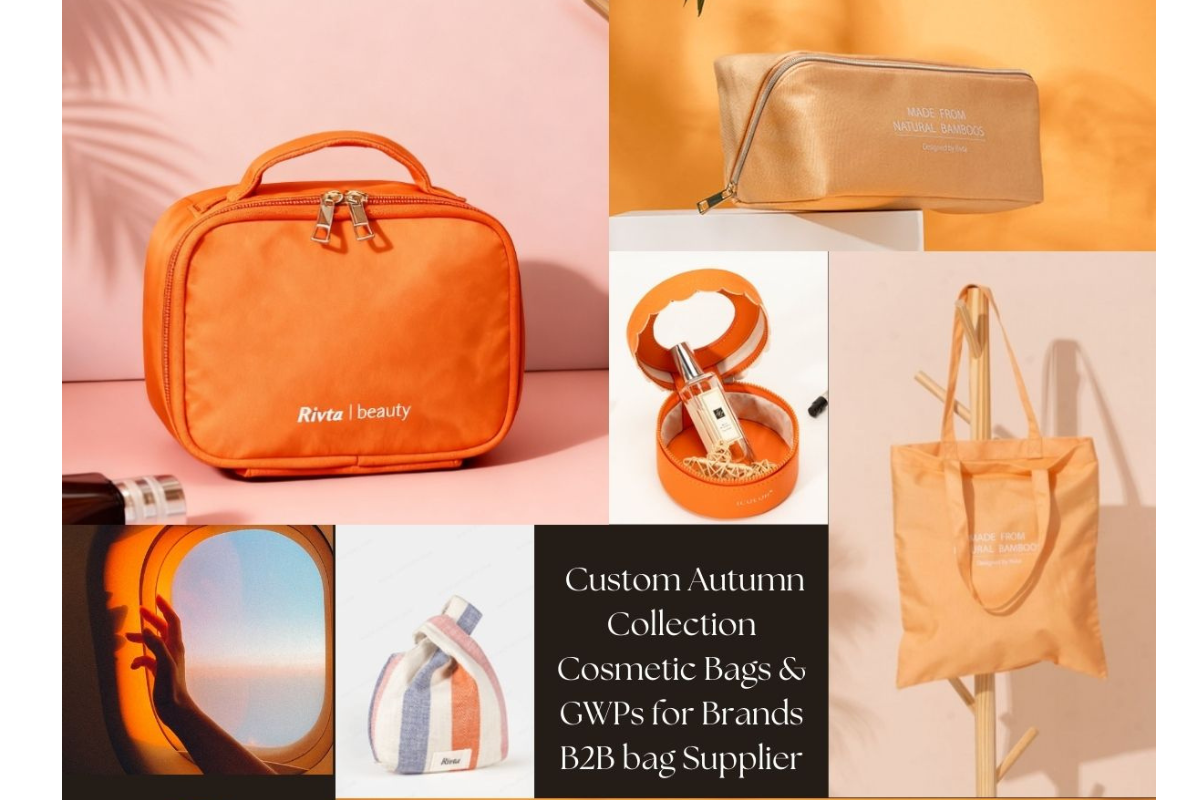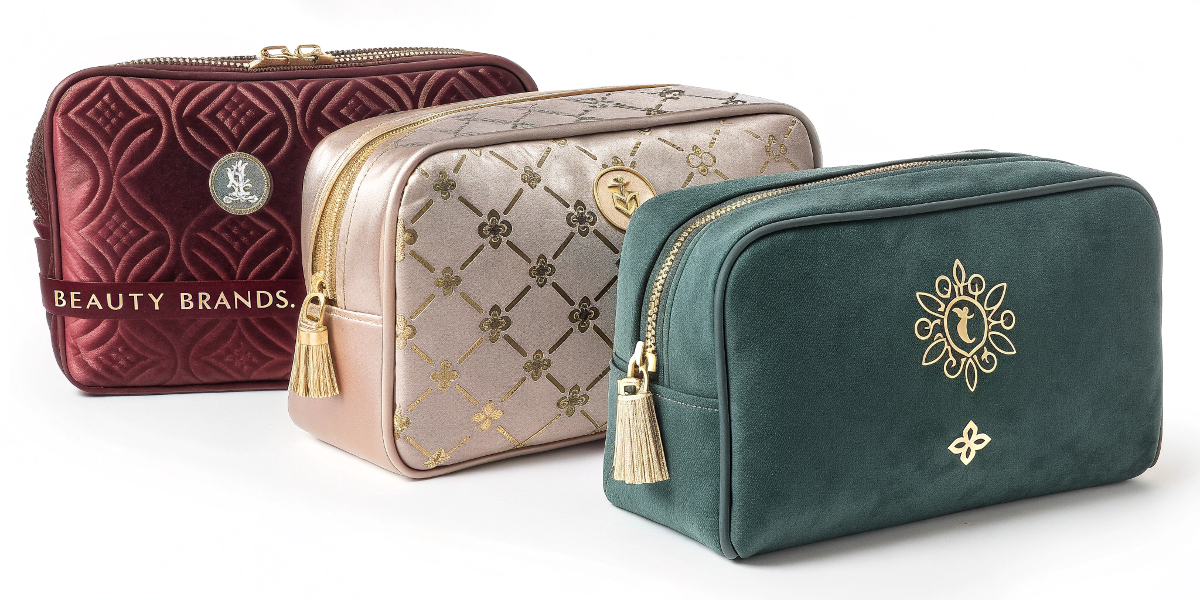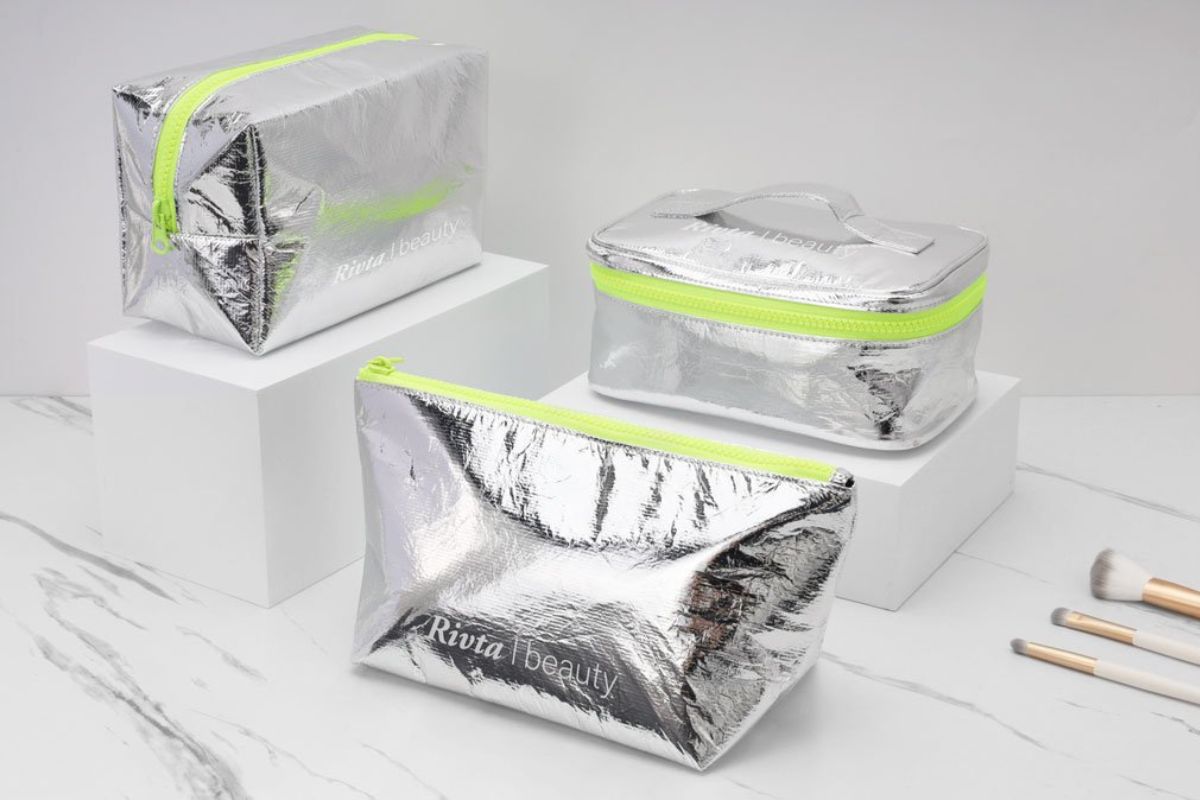From Commodity to Community: Why Premium Skincare Brands Are Switching to Quilted PU Cosmetic Bags
The beauty industry has undergone a remarkable transformation over the past decade. What was once a straightforward transaction between manufacturer and consumer has evolved into something far more meaningful – a relationship built on shared values, sustainability consciousness, and authentic brand experiences. At the heart of this evolution lies an unexpected player: the foil cosmetic bag.
In the past, cosmetic bags were simple, functional accessories—basic nylon pouches with minimal design consideration. But today, there's a clear shift: premium skincare and beauty brands are discovering how vegan leather cosmetic bags elevate packaging from a commodity to a key brand touchpoint—building loyalty, perceived value, and long-term community. It signifies a fundamental reimagining of how brands connect with their customers and communicate their values through every touchpoint.
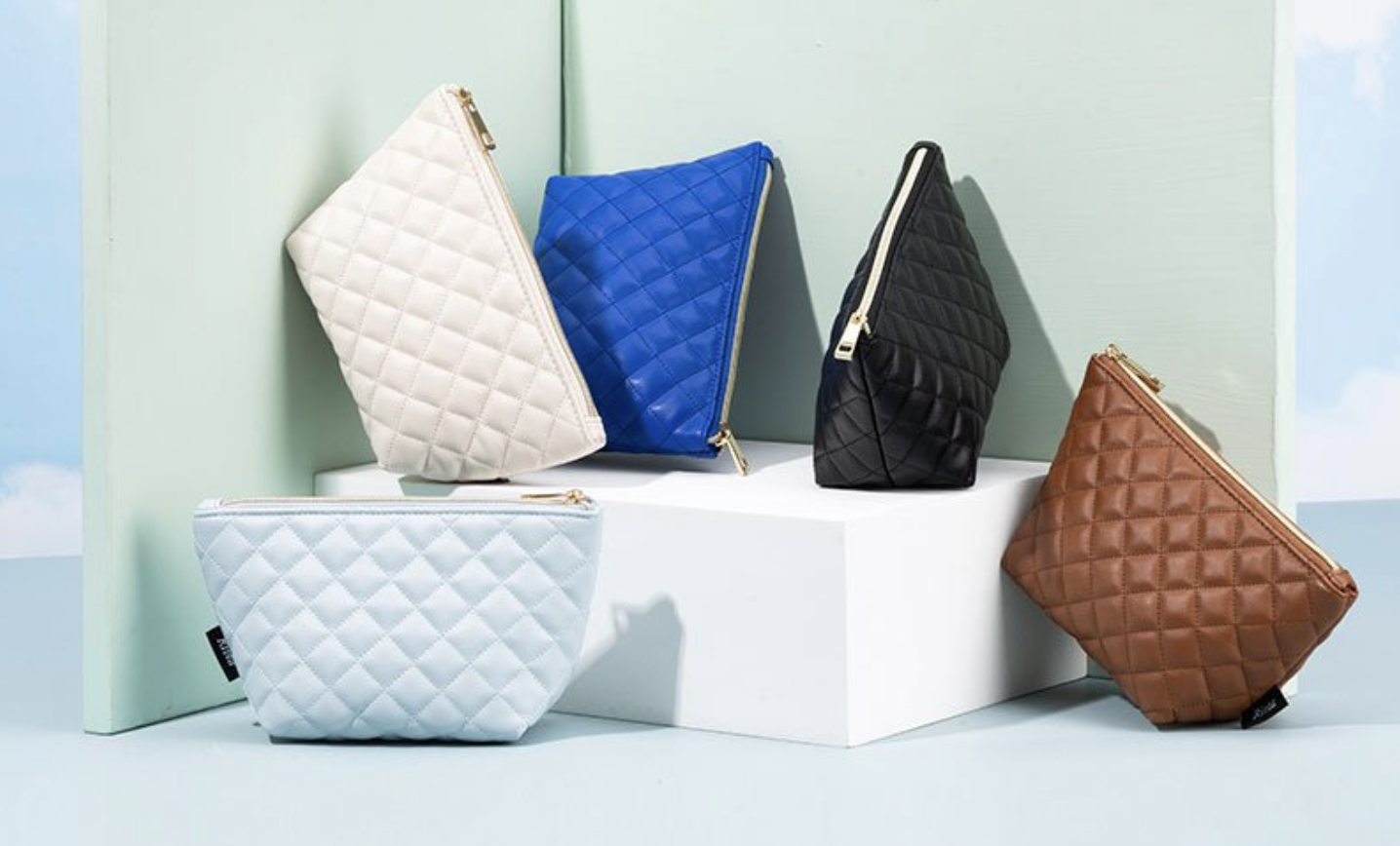
The Material Revolution: Understanding Vegan Leather's Rise in Premium Markets
PU leather has emerged as a cost-effective, eco-friendly, and stylish synthetic material, ideal for brands pursuing trends and sustainability. The shift from commodity thinking to community building has driven brands to reconsider every element of their customer experience, including the often-overlooked cosmetic bag.
Traditional materials like genuine leather, while luxurious, present several challenges for modern skincare brands. The environmental impact, ethical concerns, and supply chain complexities have led forward-thinking companies to explore alternatives that align better with their sustainability commitments and customer values.
Polyurethane leather, particularly in its quilted form, offers a compelling solution that bridges the gap between premium aesthetics and responsible manufacturing. PU leather is an artificial leather made of thermoplastic polymer that is completely artificial and considered vegan, making it particularly attractive to brands serving environmentally conscious consumers.
The quilting process adds another dimension to PU's appeal. Beyond its visual impact, quilted PU provides enhanced protection for delicate skincare products while maintaining a sophisticated appearance that resonates with premium brand positioning——Elegant diamond pattern.
Eco‑Innovation & Regulatory Appeal
Mid- to high‑end brands increasingly prioritize sustainability. While PU is synthetic, there are eco-conscious developments:
- Vegetable-tanned PU: avoids phthalates/residual solvents
- Recycled PU: made from post-industrial or post-consumer materials
- Biodegradable PU: under development—brand-forward R&D opportunity
Industry evolves toward eco-responsibility, evidenced by popularity of eco-materials like Tyvek, cork, canvas—but quilted PU remains a stronger luxury option. Brands are combining quilted PU exteriors with recycled or biodegradable lining to balance luxe and sustainable features.
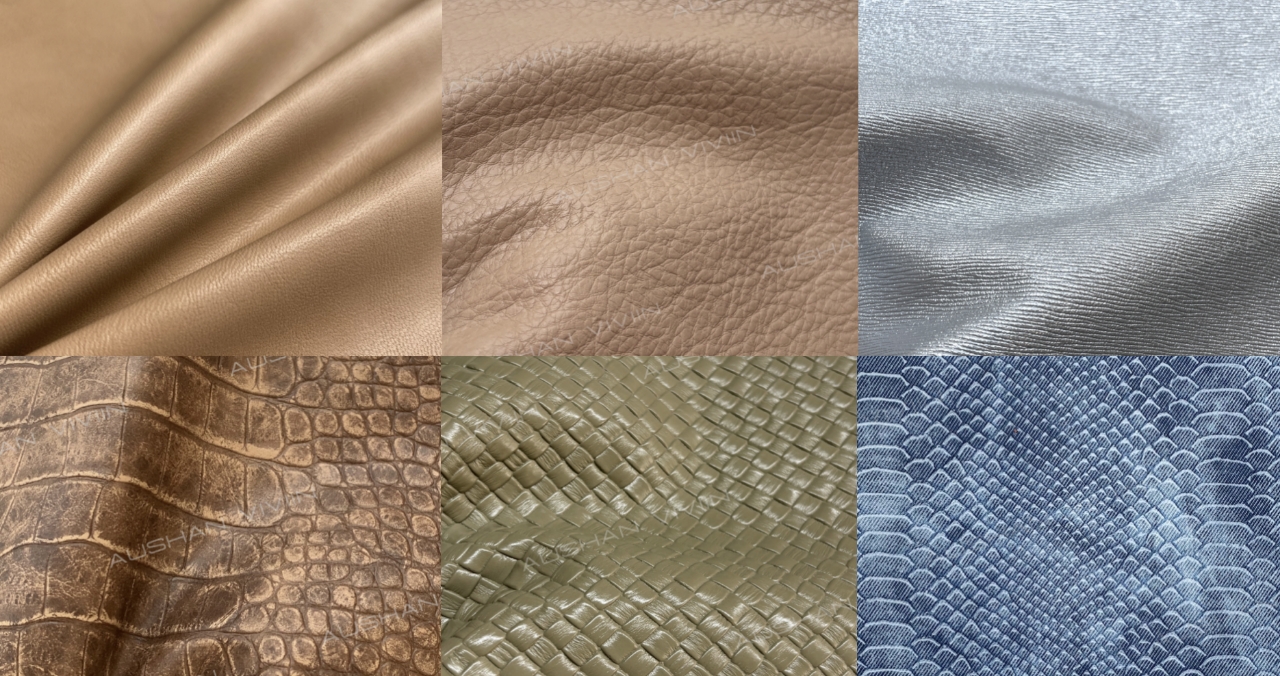
Technical Innovation: The Engineering Behind Quilted PU Excellence
The evolution of quilted PU technology has been remarkable. Modern manufacturing processes have eliminated many early concerns about durability and quality consistency that initially deterred premium brands from adopting synthetic alternatives.
Contemporary quilted PU features multi-layer construction that provides superior protection for skincare products. The outer layer offers water resistance and easy cleaning – essential features for cosmetic applications. The quilted pattern itself serves functional purposes beyond aesthetics, creating cushioned compartments that prevent product movement and potential damage during transport.
Advanced manufacturing techniques now allow for precise customization that was previously impossible with traditional materials. Embossing, color matching, and texture variation can be achieved with remarkable consistency across large production runs, ensuring brand cohesion regardless of order volume.
Temperature resistance has also improved significantly. Modern PU formulations maintain their structural integrity and appearance across a wider temperature range, crucial for products that may be exposed to various climate conditions during shipping and storage.
Market Dynamics: The Shift from Product to Experience
The premium skincare market has matured beyond simple product efficacy. Today's consumers, particularly those in the 35-50 age demographic who represent the primary market for premium skincare products, seek brands that reflect their values and lifestyle choices.
Research indicates that packaging influences purchase decisions for 72% of premium skincare consumers. However, the influence extends beyond the initial purchase – packaging quality directly impacts brand perception, repurchase likelihood, and customer advocacy behaviors.
Quilted PU cosmetic bags address multiple consumer priorities simultaneously. They provide the premium feel expected from high-end skincare brands while demonstrating environmental responsibility. The practical benefits – easy cleaning, durability, and versatility – ensure continued use long after the original products are consumed, extending brand exposure and reinforcing positive associations.
The community aspect becomes apparent when considering how these bags function in customers' daily lives. Unlike disposable packaging that creates waste guilt, well-designed quilted PU bags become integrated into customers' routines, serving as travel companions, gym bags, or organizing solutions. Each use reinforces the brand relationship and demonstrates the company's understanding of real-world customer needs.
Manufacturing Partnership: The Foundation of Success
The transition to quilted PU cosmetic bags requires careful manufacturer selection and partnership development. Not all manufacturing capabilities are equal, and the difference between success and disappointment often lies in choosing partners with appropriate experience and technical capabilities.
Established manufacturers with decades of experience bring invaluable knowledge about material behavior, production optimization, and quality control. Companies that have navigated multiple industry transitions understand the shade of working with premium brands and the importance of consistent quality delivery.
The customization capabilities of manufacturing partners directly impact brand success. Premium skincare brands require manufacturing partners who can execute complex design requirements while maintaining production efficiency. This includes color matching capabilities, embossing precision, hardware selection, and finishing quality.
Supply chain reliability has become increasingly important. Manufacturing partners with robust supply chain management can ensure consistent material availability and production scheduling, crucial factors for brands with seasonal launches or promotional campaigns.
Quality control systems represent another critical partnership factor. Premium brands cannot afford quality inconsistencies that might impact their reputation. Manufacturing partners with comprehensive quality management systems provide the assurance necessary for confident brand launches.
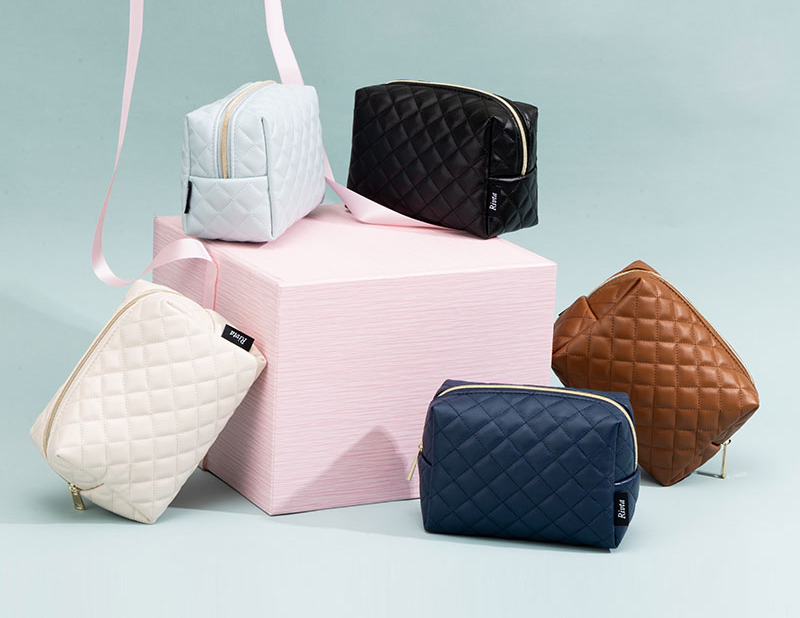
Customization: Beyond Standard Solutions
The move toward quilted PU cosmetic bags has opened new possibilities for brand differentiation through customization. Unlike traditional materials with limited modification options, PU leather can be adapted to reflect unique brand characteristics while maintaining premium quality standards.
Color customization represents the most visible differentiation opportunity. Modern manufacturing techniques allow for precise color matching that ensures brand consistency across all touchpoints. This capability is particularly valuable for brands with specific color palettes that form part of their brand identity.
Texture variation offers another customization dimension. Quilting patterns can be modified to create unique visual signatures that become associated with specific brands. Some companies have developed proprietary quilting patterns that serve as subtle brand identifiers, recognizable to loyal customers.
Hardware selection provides additional differentiation opportunities. Zipper quality, pull design, and metal finishes can be customized to align with brand positioning. Premium brands often specify unique hardware configurations that enhance functionality while reinforcing brand distinctiveness.
Size optimization allows brands to create cosmetic bags perfectly suited to their product lines. Rather than accepting standard dimensions, custom manufacturing enables the development of bags optimized for specific product combinations, improving customer experience and demonstrating thoughtful brand attention to detail.
Case in Point: Travel Sets That Resonate
Scenario: Marc Inbane launches a limited-edition "Summer Essentials Set" with travel-friendly tanning oil, refillable spray, and microfiber towel. Instead of plastic, they choose a quilted PU cube bag—luxurious in peach quilt, interior ray-pattern lining, embossed logo, padded quilting that matches their brand tone.
Result:
- Social buzz: consumers share first impressions of luxe packaging
- Reuse value: customers keep the bag for tools or small accessories
- Perceived price point rises: the set feels like a boutique travel kit
- Sustainability narrative: reusable vs disposable bags aligns with mindful branding
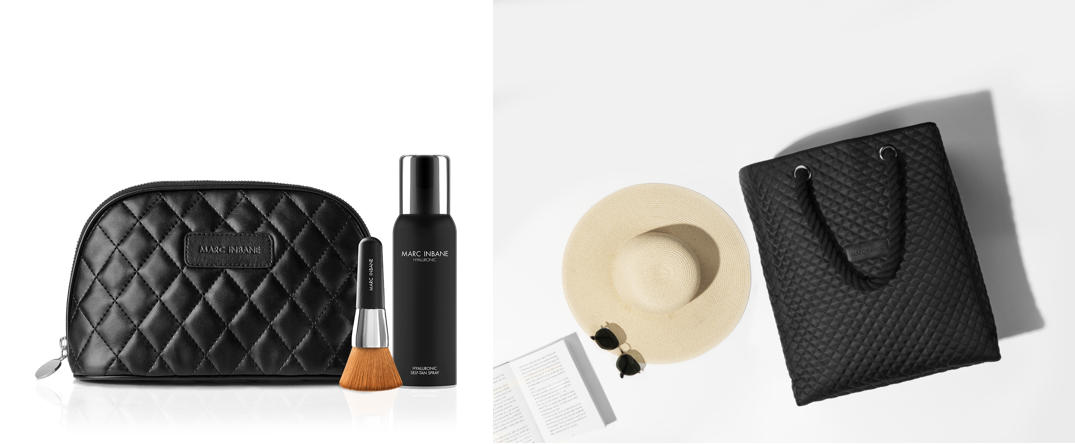
Sustainability: Aligning Values with Action
Environmental consciousness has become a defining characteristic of premium skincare consumers. Brands that successfully demonstrate environmental responsibility through their packaging choices often experience enhanced customer loyalty and positive brand advocacy.
PU leather is considered vegan and completely artificial, addressing ethical concerns that increasingly influence purchase decisions. The production process generates significantly less environmental impact compared to traditional leather processing, which requires extensive chemical treatments and generates substantial waste.
The durability advantage of quilted PU contributes to sustainability goals by extending product life cycles. Unlike packaging that requires replacement after short periods, well-manufactured PU cosmetic bags can provide years of service, reducing overall environmental impact through extended use.
Recycling compatibility represents another sustainability advantage. While traditional leather presents recycling challenges due to chemical treatments, PU materials can be processed through established recycling streams, supporting circular economy principles.
Manufacturing efficiency also contributes to sustainability. PU production requires less water, generates fewer chemical byproducts, and operates with greater energy efficiency compared to traditional leather processing. These factors align with the sustainability commitments that premium skincare brands increasingly make to their customers.
Future Outlook: Innovation and Market Evolution
The trend toward quilted PU cosmetic bags reflects broader industry changes that will continue shaping the premium skincare market. Understanding these trends helps brands make informed decisions about packaging investments and customer engagement strategies.
Technology integration represents one emerging trend. Future cosmetic bag designs may incorporate smart features such as temperature monitoring, humidity control, or even product usage tracking. PU materials provide the flexibility necessary for integrating these technologies while maintaining aesthetic appeal.
Personalization capabilities will likely expand further. Advanced manufacturing techniques may enable individual bag customization at scale, allowing brands to offer personalized packaging that creates unique customer experiences and strengthens brand relationships.
Material innovation continues advancing. Next-generation PU formulations promise enhanced durability, improved environmental compatibility, and new aesthetic possibilities. Brands that establish relationships with innovative manufacturers position themselves to benefit from these developments.
Innovation Overview:
| Innovation Area | Current Status | Near-term Potential | Strategic Impact |
|---|---|---|---|
| Smart Integration | Basic concepts | Temperature/humidity sensors | Enhanced product protection |
| Personalization | Limited customization | Individual bag customization | Unique customer experiences |
| Material Advancement | Standard PU | Bio-based PU alternatives | Improved sustainability |
| Production Automation | Semi-automated | Fully automated processes | Cost reduction and consistency |
| Design Complexity | Simple patterns | Complex multi-texture designs | Premium differentiation |
Building Brand Community Through Thoughtful Design
The most successful premium skincare brands understand that cosmetic bags represent opportunities for ongoing customer engagement rather than simple product containers. Thoughtful design consideration creates positive brand experiences that extend far beyond the initial purchase.
Functional design elements contribute to customer satisfaction and brand perception. Features such as interior organization pockets, secure closures, and comfortable handling enhance daily use experiences. These practical benefits create positive associations that customers attribute to the brand itself.
Aesthetic consistency across all brand touchpoints reinforces brand identity and creates cohesive customer experiences. When cosmetic bags reflect the same design principles as product packaging, marketing materials, and digital presence, customers develop stronger brand recognition and loyalty.
The social aspect of cosmetic bag design shouldn't be overlooked. Well-designed bags often generate positive social media attention and word-of-mouth recommendations. This organic brand promotion provides value that extends far beyond the bag's manufacturing cost.
Next Steps & Why Rivta
If you're a decision-maker evaluating premium packaging, consider:
- Initial ideation – Rivta provides CAD designs matched to your branding
- Prototype samples – physical pre-production units for testing
- User testing – incorporate into travel sets; collect feedback
- Iterate – adjust quilting density, bag size, interior layout
- Scale – flexible production ramp-up aligned with seasonality
Since the 1990s, Rivta has helped global beauty brands transition packaging from "functional" to "foundational." We understand that packaging is no longer just something you toss—it's part of the product story.
Final Thoughts
In today's competitive beauty landscape, packaging is not just the shell—it's an extension of brand identity, product purpose, and customer relationship. Quilted PU cosmetic bags offer a union of:
- Elevated aesthetics
- Tactile quality
- Reusability
- Customization
- Brand storytelling
For mid‑high‑end skincare brands like yours, they're more than containers—they're statement pieces. And manufacturers like Rivta—with decades of custom craftsmanship, eco-material innovation, and flexible production—are ideal partners to bring this vision to life.
Let's redefine packaging together—turning cosmetic bags from commodity to community‑building assets.
